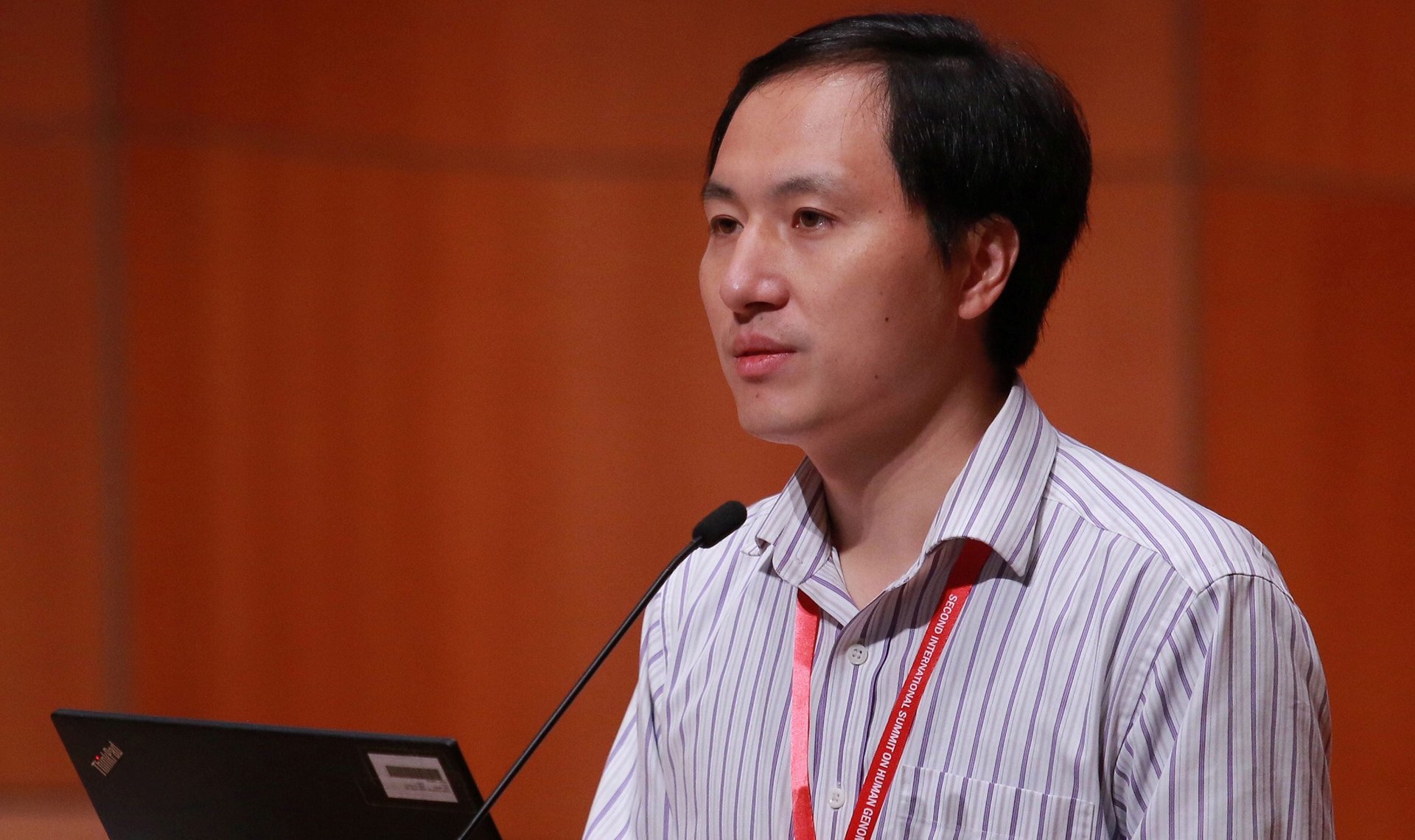The scientist behind the Crispr babies says another could be on the way
The Chinese scientist who claimed he helped create a pair of genetically edited twin girls with HIV resistance may have more such babies on the way.


The Chinese scientist who claimed he helped create a pair of genetically edited twin girls with HIV resistance may have more such babies on the way.
He Jiankui, who was educated at Stanford University and Rice University, revealed today (Nov. 28) there is another “potential pregnancy” at a conference on human-genome editing held at the University of Hong Kong, where an auditorium full of scientists, reporters, and photographers—whose cameras were so loud that they sometimes drowned out his voice—grilled the scientist three days after his controversial claims first came to light.
On Sunday (Nov. 25), the MIT Technology Review and Associated Press both reported that He’s experiments resulted in the birth of twin girls named Lulu and Nana. Of the seven couples taking part in his trials, the men are all HIV-positive while the women are not. The couples underwent in-vitro fertilization, in which a sperm is injected in an egg in a petri dish, and then after a few days a living embryo is planted in the mother’s womb. In this case, however, there was a small tweak. After the egg was fertilized, He’s team injected Crispr-Cas9, a genetic tool that can precisely target and cut a specific gene among 20,000 human genes.
He’s claims haven’t yet been independently verified. His employer, the Southern University of Science and Technology in Shenzhen, has said in a statement (link in Chinese) that He’s research was carried out without its knowledge. China’s National Health Commission has ordered an investigation to verify He’s claims, while more than 100 Chinese scientists have condemned He’s claims as “crazy” in a co-signed letter. Rice University also said it’s opening an investigation into one of its researchers who said he had cooperated with He.
At the conference, He gave a PowerPoint presentation explaining the science behind his experiment, but not before he apologized that the results of the experiment had “leaked unexpectedly”—a claim many found puzzling given that he had done media interviews and recorded videos of himself on YouTube ahead of time, with the timing of those media reports coming just days before the conference opened yesterday. He also acknowledged that the study had not been peer reviewed and that his university did not know about it.
He then fielded many questions from reporter and his peers, most of whom said they were deeply concerned with the ethics and procedures of his experiment and pressed him for more details on everything from funding to the informed-consent process to the wellbeing of the children—to which He offered mostly vague, evasive answers. One attendee asked He if there were other genetically edited pregnancies as part of his clinical trials, to which He said there was “another potential pregnancy.”
The Chinese scientist defended his experiment and said that he was “proud” of his achievements, and rejected arguments that resistance to HIV infection was an unsound reason to genetically edit embryos. David Baltimore, a Nobel laureate from the California Institute of Technology and chair of the conference, for example, said in a strongly worded speech that he didn’t think He’s experiment was “medically necessary,” and instead called it “irresponsible.”
He opened his presentation with a slide explaining how HIV continued to be a serious problem in China, with infections increasing even as worldwide rates have fallen since 2000. He later said that his experience with people from China’s “AIDS villages“—where some parents gave their children to other family members to raise to avoid infection—helped him decide it was a worthwhile reason to embark on the study.
Many had questions over the transparency of the study, and to what extent the seven sets of parents who took part in the study had full knowledge of what they were doing. He’s answers were short on details, explaining that he had “consulted” scientists in the US and Asia about the clinical trials, but he did not answer directly why he had kept his trials secret from Chinese authorities. When pressed to clarify the process of informed consent, He said that the parents—who were contacted through AIDS support groups—were “very well educated,” but sidestepped a question asking whether his colleagues conducting the trials were trained in taking consent. He added that the informed-consent form was uploaded online for public viewing.
He also did not answer questions of where funding for his trials came from, but said that his private companies were not involved. He said some of the sequencing costs were covered by the university, and that he paid for the medical care and expenses of the participants.
Above all, it seemed the question of the welfare of the twin girls drew the strongest reactions from the crowd. He reassured the audience that he would monitor them for the next 18 years, but did not respond directly to a question about whether their modified genotype would affect their upbringing. He also referred people to an article published on Nov. 26 in the Crispr Journal he co-authored, titled “Draft Ethical Principles for Therapeutic Assisted Reproductive Technologies,” and as further proof of his belief and confidence in his experiment, ended his talk by saying that if the embryo was going to be his baby, he would also undergo the experiment.